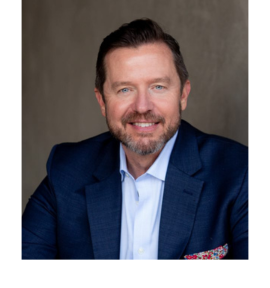Cooperation is an essential organizing and survival attribute for many organisms. Human beings cooperate to live, work, and exist in groups. We form tribes with one membership rule: be loyal to one's tribe and disdain those not in your tribe. Watch any sports match, and the behavior is on full display. Tribalism, however, conflicts with cooperation. What now?
Do you fear more political tribalism?
How do we learn to play nice?
Cooperation is an essential organizing and survival attribute for many organisms. Human beings cooperate to live, work, and exist in groups. We form tribes with a guiding membership rule: be loyal to one’s tribe and disdain those not in your tribe. Watch any sports match, and the behavior is on full display. Tribalism, however, conflicts with cooperation. With divisions growing wider, what now?
Sociality is one of fifteen Conditions of Life™
Sociality is a Condition of Life™, defined as functioning among others. As influential professionals, our chief concern is our fitness and ability to function well amongst other people; to get along, play well together, and cooperate. While we may care less about this in our early development, we grow more concerned with the larger society, the world, global politics, and our legacy as we mature or as we satisfy more basic needs.
Sociality means ‘group living.’ We characterize this condition as “the formulation of any general theory of social behavior that begins with describing the selective forces causing and maintaining group living.” In general, groups form and persist because all of the individuals involved somehow gain genetically.
One of the best ways to explore sociality is to understand it from a scientific view. In the book, The Social Conquest of Earth, author E.O. Wilson produces a deep understanding of the origins of the human condition.
The Social Conquest of Earth upends “the famous theory that evolution naturally encourages creatures to put family first” (Discover). Refashioning the story of human evolution, Wilson draws on his remarkable knowledge of biology and social behavior to demonstrate that group selection, not kin selection, is the premier driving force of human evolution. In a work that James D. Watson calls “a monumental exploration of the biological origins of the human condition,”
He wrote on tribalism in an article titled “Tribalism, Groupism, Globalism Are human brains hardwired to recognize some groups of people as friends and others as enemies?”
People must have a tribe. It gives them a name, adding to their own and social meaning in a chaotic world. It makes the environment less disorienting and dangerous. The social world of each modern human is not a single tribe, but rather a system of interlocking tribes.
People savor the company of like-minded friends, and they yearn to be in one of the best — perhaps an elite college or the executive committee of a company, a religious sect, a fraternity, a garden club. The goal is to belong to any collectivity that can be compared favorably with other competing groups of the same category.
People around the world today have grown ever more cautious of war and are fearful of its consequences. They have turned increasingly to its moral equivalent in team sports. Their thirst for group membership and superiority of their group can be satisfied with victory by their warriors in clashes on ritualized battlefields.
Experiments conducted over many years by social psychologists have revealed how swiftly and decisively people divide into groups, and then discriminate in favor of the one to which they belong.
Even when the experimenters created the groups arbitrarily, then labeled them so the members could identify themselves, and even when the interactions prescribed were trivial, prejudice quickly established itself.
Whether groups played for pennies or identified themselves in a group-based manner, say, preferring some abstract painter to another, the participants always ranked the out-group below the in-group. They judged their “opponents” to be less likable, less fair, less trustworthy, less competent.
In its power and universality, the tendency to form groups and then favor in-group members has the earmarks of instinct. If the propensity toward in-group bias has all these criteria, it is likely to be inherited and, if so, can be reasonably supposed to have arisen through evolution by natural selection.
Groupism – the elementary drive to form and take deep pleasure from in-group membership — easily translates at a higher level into tribalism.
People are prone to ethnocentrism. It is an uncomfortable fact that even when given a guilt-free choice, individuals prefer the company of others of the same race, nation, clan, and religion.
They trust them more, relax with them better in business and social events, and prefer them more often than not as marriage partners. They are quicker to anger at evidence that an out-group is behaving unfairly or receiving undeserved rewards. And they grow hostile to any out-group encroaching upon the territory or resources of their in-group.
When in experiments, black and white Americans were flashed pictures of the other race, their amygdalas, the brain’s center of fear and anger, were activated so quickly and subtly that the conscious centers of the brain were unaware of the response. The subject, in effect, could not help himself.
Thus, different parts of the brain have evolved by group selection to create groupishness. They mediate the hardwired propensity to downgrade other-group members, or else in opposition to subdue its immediate, autonomic effects.
There is little or no guilt in the pleasure experienced from watching violent sporting events and war films, providing the amygdala rules the action and the story unwinds to a satisfying destruction of the enemy.
We would be well advised not to belittle this inclination. It may seem trivial, but shifting tribal instincts from the very real battlefield of war and mutual human destruction to sports arenas and video games actually represents civilizational progress.[1]
How can we learn to play nice?
We can’t get out of being tribal, but we can see it as a biological rule for organizing cooperation, like an addiction we can acknowledge. Any addiction loses its power by admitting the addiction. Any automatic behavior loses its power by acknowledging its automaticity.
Big Threats Make Bigger Tribes
We’ve come together as a tribe of humanity on many occasions throughout history; during the 911 attacks on the World Trade Centers in 2001, the 1977 NYC Blackouts, or the 1994 Tsunami events.
In a show of global cooperation, 18 nations came together alongside several international organizations for one of the most ambitious, combined disaster response exercises in Southeast Asia to date. Countries from Europe, Asia, Oceania, and North America participated from their home soil to test communications capabilities and standard operating procedures. The exercise simulated a magnitude 8.9 megathrust earthquake and tsunami event in the Indian Ocean—recalling the actual earthquake and tsunami event that took place in 2004. During the 2004 quake, an event that will forever be imprinted in the hearts and minds of the world, a series of tsunami waves reaching heights of 100 feet leveled the city of Banda Aceh and claimed the lives of more than 100,000 in Indonesia alone. The destruction continued outward as waves rolled over coastlines into Thailand, India, and Sri Lanka, ultimately taking more than 230,000 lives in total.[2]
They’re Coming
Imagine the headlines; They’re Coming – Alien Armada Approaches Earth. It is easy to imagine how quickly the human race would assemble as a single human tribe. Now, it’s us against the aliens. In a moment, we forget our local or even international squabbles and become a community of one. The rule is applied quickly, be loyal to one’s tribe and disdain those not in your tribe.
So there is no alien invasion, but we have good reason to act as a larger human tribe.
Big Threats are Here
Following a year of pandemics, floods, and droughts, when fires ravaged Australia and the Amazon, environmental problems dominate the list of threats.
The latest edition of the World Economic Forum’s Global Risks Report shows how loudly global leaders sound the alarm. Established leaders agree: climate change is the stand-out long-term risk the world faces. [3]
- Extreme Weather
- Climate Action Failure
- Natural Disaster
- Biodiversity Loss
- Human-made environmental disaster
- Data Fraud or Theft
- Cyberattacks
- Water Crises
A global tribe could handle this. We could cooperate. However, the moment subjects such as religion, environment, or science are belittled by one tribe, the tribe has no choice but to divide. Preying on our tribal instincts has become the de facto recurring tactic of war and politics; divide the people then play savior.
What Now?
The tactic “divide and play savior” is deployed across all parties. It helps the politician (or ad exec, sports team, or religious leader) use the divisiveness to do the heavy lifting; spreading the loyalty/disdain in its path – and making way for a savior/solution. As we stated, we form tribes with a guiding membership rule: be loyal to one’s tribe and disdain those not in your tribe. These rules are not in the foreground but in the instinctual background of our species.
But it gets worse. The other unwritten rules are:
- Your tribe is the one true tribe
- Your tribe is lead by the one true leader (or diety)
- Only through the one true tribe can you achieve happiness (in this life or eternally)
- All other tribes are threats to my tribe
Any automatic behavior loses its power by acknowledging its automaticity.
When you study the Condition of Life Sociality, with a commitment to think accurately about satisfying this condition, we first must confront the gap to our satisfaction. This gap is revealed with the recognition of the practices, behaviors, and beliefs which are barriers to our satisfaction.
The unwritten rules of tribalism might have worked well for our species origin, but for our species survival, we’re going to have to rewrite the rules.
Perhaps the first rule might be: Accept our differences and focus on our similarities. We are much more alike than we are different.
What might your new rules be?
Citations
[1] Tribalism, Groupism, Globalism Are human brains hardwired to recognize some groups of people as friends and others as enemies?
By E.O. Wilson, January 7, 2013, The Globalist
E.O. Wilson is Honorary Curator in Entomology and University Research Professor Emeritus, Harvard University
E.O. Wilson is generally recognized as one of the several leading biologists in the world. He is acknowledged as the creator of two scientific disciplines (island biogeography and sociobiology), three unifying concepts for science and the humanities jointly (biophilia, biodiversity studies, and consilience), and one major technological advance in the study of global biodiversity (the Encyclopedia of Life).
Among more than a hundred awards he has received worldwide are the U. S. National Medal of Science, the Crafoord Prize of the Royal Swedish Academy of Sciences (considered the equivalent of the Nobel Prize, for ecology), and the International Prize of Biology of Japan
He has received two Pulitzer Prizes in nonfiction (in 1979 for “On Human Nature,” and in 1971 for “The Ants,” which he co-authored with Bert Hölldobler), the Nonino and Serono Prizes of Italy, and the COSMOS prize of Japan.
[2] Not ‘going it alone,’ 18 nations join forces in major disaster response exercise
PDC Global, August 2, 2019
PDC Global. For more than 20 years, Pacific Disaster Center (PDC) has supported the most demanding government customers and nonprofits worldwide, sharing in the mission to save lives and reduce disaster risk. As an applied research center managed by the University of Hawaii, we are continuously developing new technologies and best practices to help our many global partners effectively mitigate, prepare for, respond to, and recover from disasters.
[3] These are the top risks facing the world in 2020
World Economic Forum, January 15, 2020, Charlotte Edmond, Senior Writer, Formative Content
The World Economic Forum is the International Organization for Public-Private Cooperation. The Forum engages the foremost political, business, cultural, and other leaders of society to shape global, regional, and industry agendas. It was established in 1971 as a not-for-profit foundation and is headquartered in Geneva, Switzerland. It is independent, impartial and not tied to any special interests. The Forum strives in all its efforts to demonstrate entrepreneurship in the global public interest while upholding the highest standards of governance. Moral and intellectual integrity is at the heart of everything it does.

AUTHOR
John Patterson
Co-founder and CEO
INFLUENTIAL U
John Patterson co-founded and manages the faculty and consultants of Influential U global. Since 1987, he has led workshops, programs, and conferences for over 100k people in diverse professions, industries, and cultures. His history includes corporate curriculum design focusing on business ecosystems, influence, leadership, and high-performance training and development.



